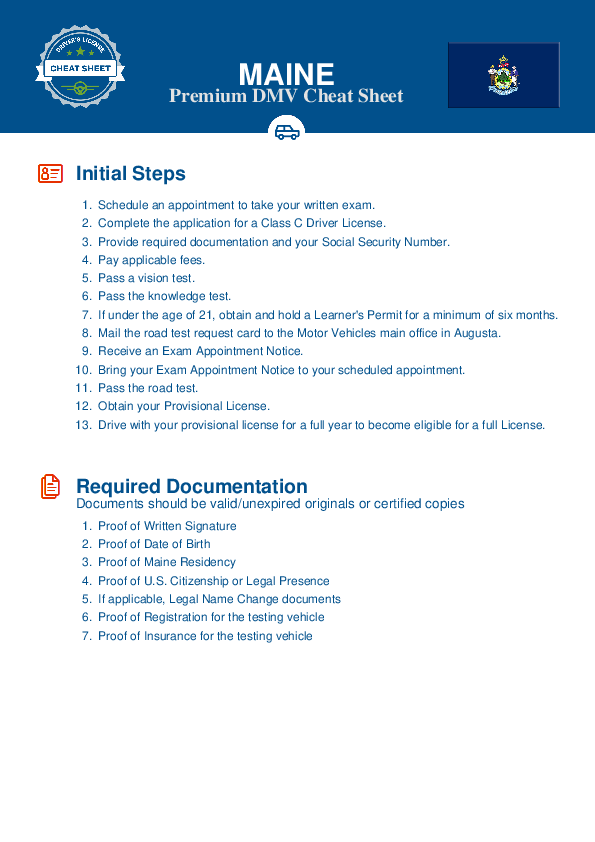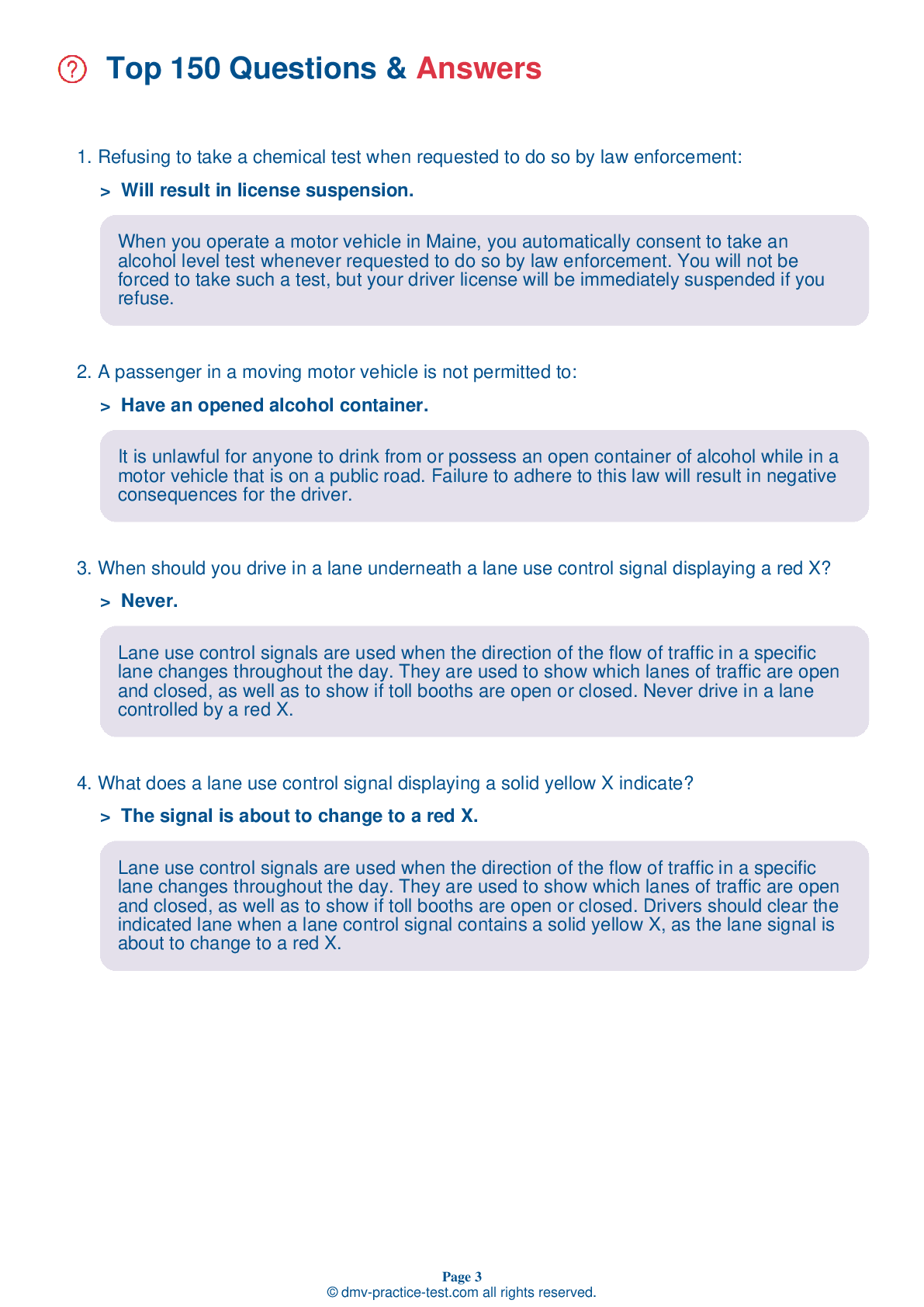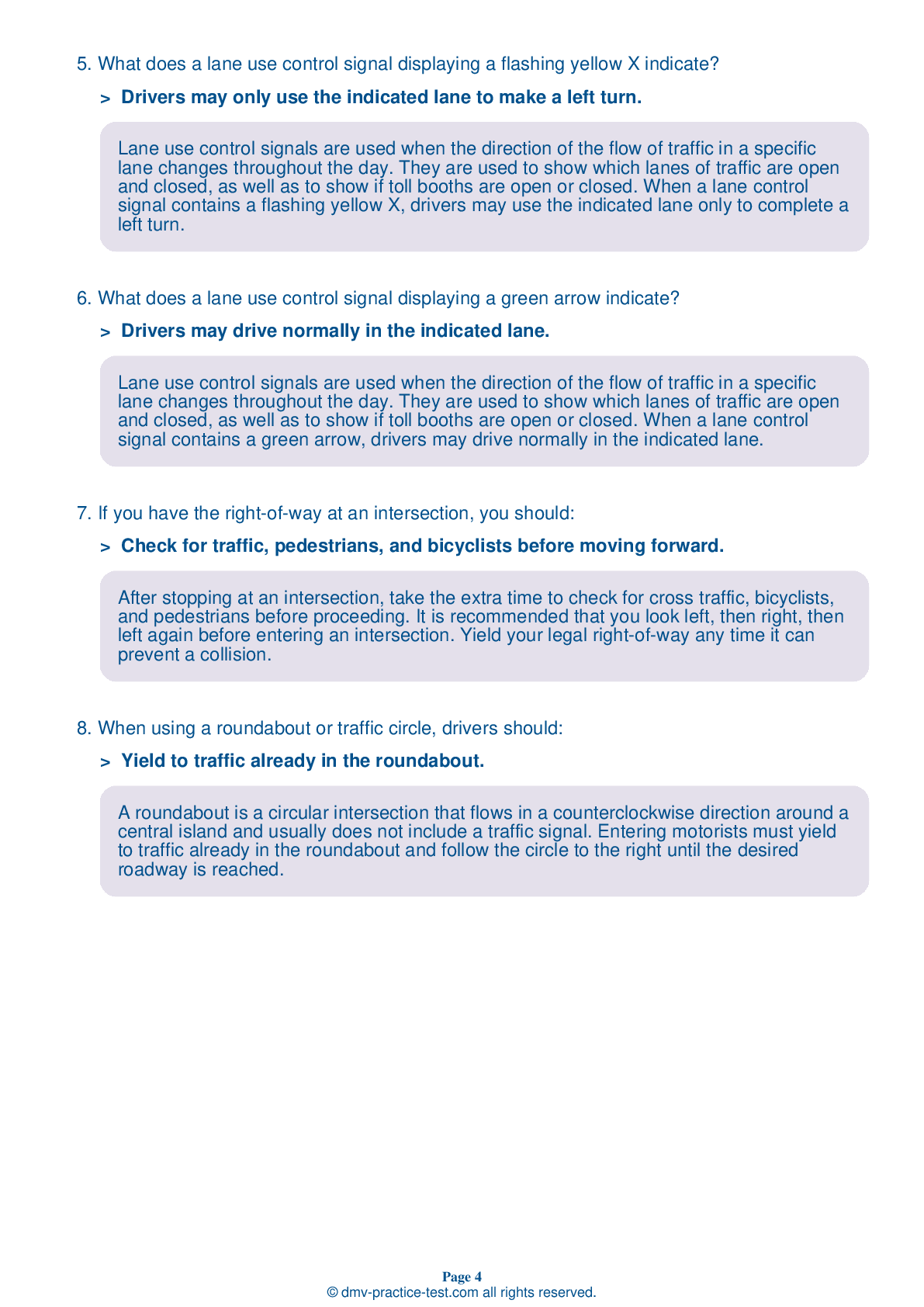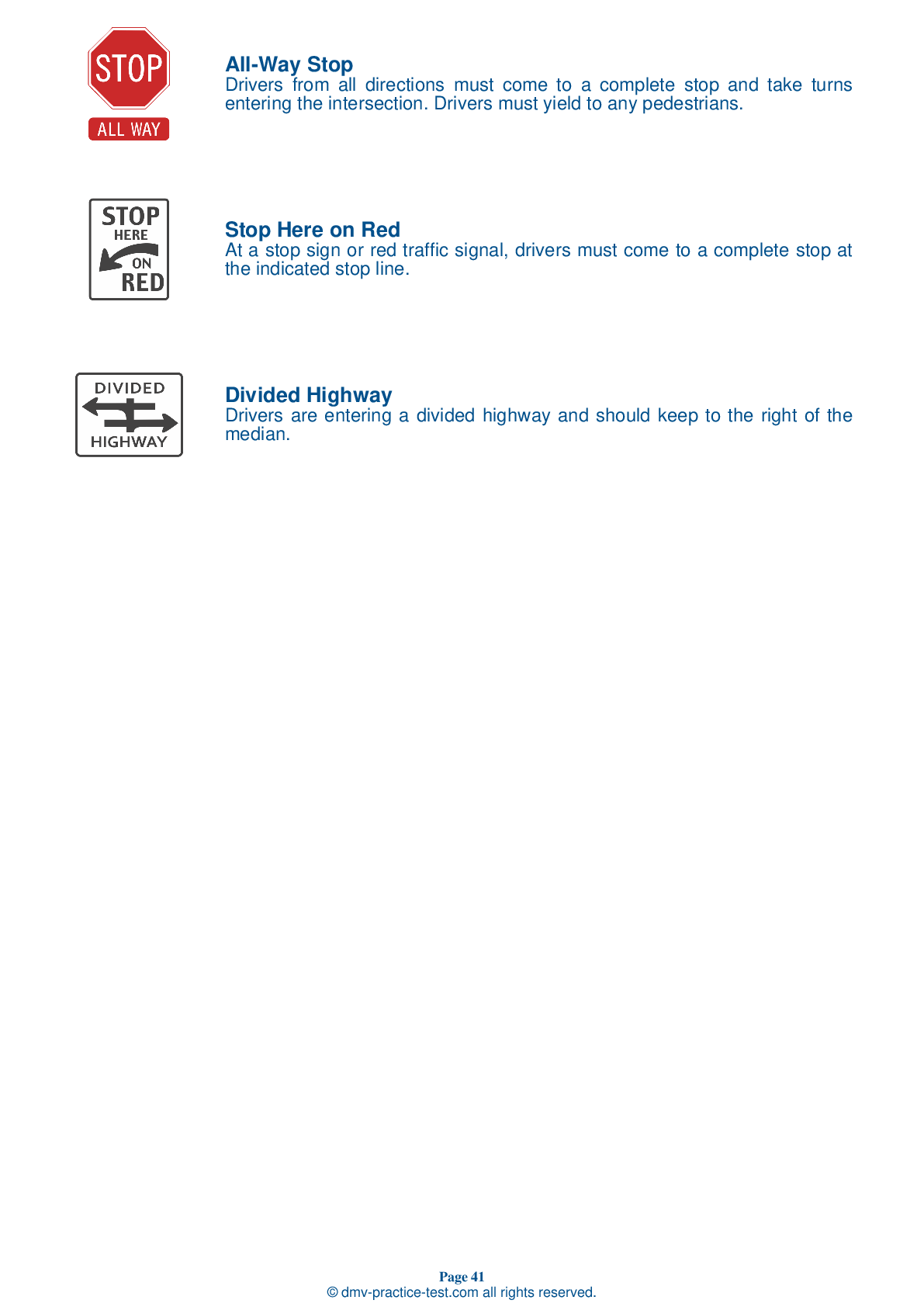FREE Maine DMV Practice Test #6 Page 6 of 7
For January 2025, Maine's DMV practise exams have been updated. It includes questions based on the most important traffic signals and legislation for 2025 from the Maine Driver Handbook. To study for the DMV driving permit test and driver's licence exam, use actual questions that are very similar (often identical!) to the DMV driving permit test and driver's licence exam.
Each question on the practise exam has a tip and explanation to help you recall the ideas. Questions about traffic rules, traffic signs, and driving statutes, as well as knowledge from the Driver Handbook, will be included in the written portion of the official Maine DMV test.
You must properly answer 50 of the 60 questions to receive a passing mark. To help you prepare for your Maine instruction permit or driver's licence, take our DMV practise test.
The DMV exam is offered in a variety of languages.
Using any form of testing help will result in an automatic fail, and the DMV may take further action against your driver's licence, so avoid it.
41 . Each time you pass a car, there is:
Each time you pass another car, there is an increased chance of collision. Only pass another car when you are certain it is safe to do so.
42 . The fatal accident rate for night driving is nearly three times greater than it is for daytime driving.
The fatal accident rate for night driving is nearly three times greater than it is for daytime driving, despite the fact that there are less miles driven at night. It is a good habit to drive more slowly at night than you would during the day because overall visibility is much more restricted in the dark.
43 . This sign means:

Warning signs are used to warn drivers about upcoming hazardous conditions and are usually yellow with black markings. This sign tells drivers that they are approaching a school zone and that they should slow down and watch for children.
44 . It is important to be alert to motorcycles because:
Motorcycles are smaller and harder to see than cars. Because of their size, they are easily hidden in a car’s blind spot. It may be difficult to judge your distance to a motorcycle and difficult to tell how fast a motorcycle is moving, so always be alert and extra cautious when near a motorcyclist.
45 . A regulatory sign containing a red circle with a slash through the middle indicates:
Some regulatory signs prohibit certain actions. These signs are rectangular and white with red and black markings. A red circle and slash on top of a black symbol indicates that the specified action is forbidden.
46 . If you are about to be hit from the rear, you should not:
If your vehicle is hit from the rear while you are in forward motion, your body will be thrown backward. Brace yourself by pressing against the back of your seat and putting your head against the head restraint to prevent whiplash. Maintain a firm grip on the steering wheel and be ready to apply your brakes to avoid being pushed into another vehicle.
47 . What is the only way to reduce your blood alcohol concentration (BAC)?
The only method that effectively reduces your BAC is to not drink alcohol for a period of time. Coffee, exercise, and cold showers cannot reduce your BAC or change the effects of alcohol. They can help you remain awake, but they cannot change your BAC or make you sober.
48 . "No passing zone" signs tell drivers:
If you come across a "No passing zone" sign, it is not legal to pass in the indicated area. You are likely driving in an area with restricted visibility where it would be unsafe to pass another vehicle.
49 . When you become too drowsy to focus on driving, your safest option is to:
When you are tired, you cannot drive as safely as you can when you are well-rested. Your reactions are slowed and your decision-making skills are reduced. If you become drowsy while driving, leave the road and rest.
50 . It is more dangerous to drive at night than during the day because:
With decreased visibility and the glare of oncoming headlights, you cannot see as far ahead at night as you can during the day. Always use headlights and exercise caution when driving in the dark.
See the exact questions that will be on the 2025 Maine DMV exam.
99.2% of people who use the cheat sheet pass the FIRST TIME
LT gives us an insight on how the cheat sheet provided her with all the study questions she needed before taking her test.
Joe initially studied with the handbook and failed his test, he eventually found us online, studied and pass his test the first time around.



